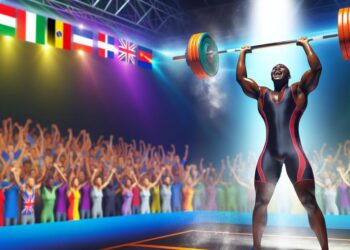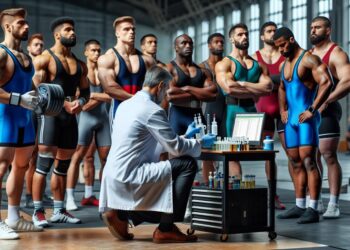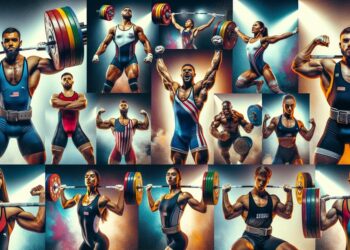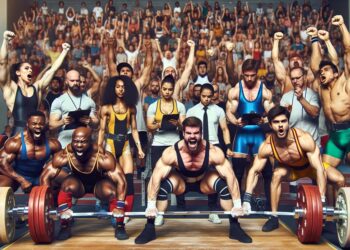When it comes to powerlifting, you know that strength and performance go hand in hand. But have you ever considered the crucial role that nutrition plays in fueling your athletic endeavors? It's not just about devouring protein bars and chugging energy drinks. No, there's a science behind optimizing your nutrition strategies to enhance your powerlifting performance. In this discussion, we will explore the macronutrient ratios, meal timing, hydration, pre-workout fueling strategies, and post-workout recovery nutrition that can take your powerlifting game to the next level. Get ready to unlock the secrets of fueling your athletic potential like never before.
Key Takeaways
- Properly fueling the body before workouts is essential for enhancing energy levels and muscle growth in powerlifters.
- Consuming a balanced meal containing carbohydrates, protein, and healthy fats before training ensures enough energy for peak performance.
- Timing is crucial when it comes to pre and post-workout nutrition, as consuming a balanced post-workout meal within 2 hours stimulates muscle protein synthesis.
- Hydration is important for optimal performance, and sports drinks can be beneficial during intense training sessions or competitions lasting longer than one hour.
Understanding Macronutrient Ratios
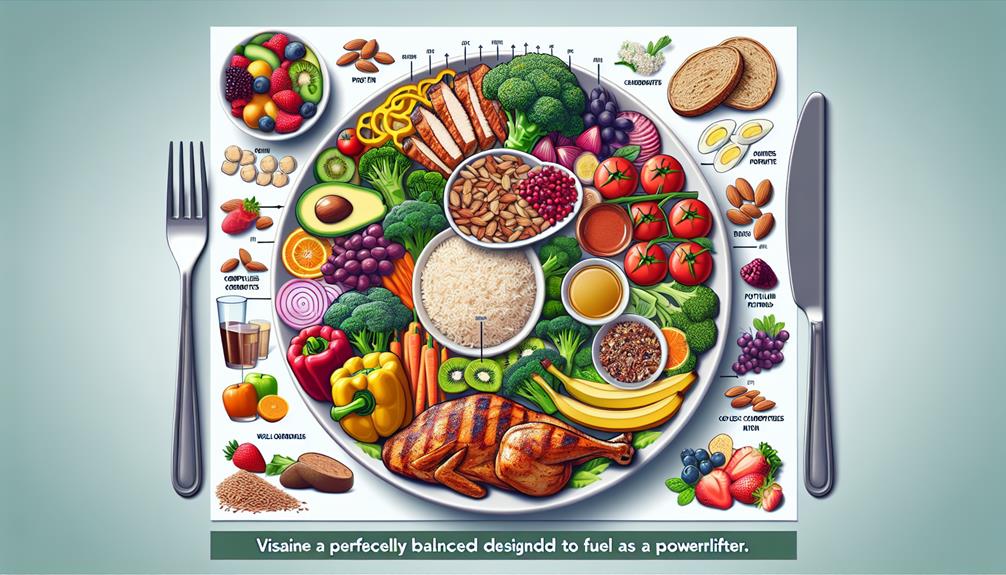
To optimize your performance as a powerlifter, it is crucial to understand the importance of macronutrient ratios in your nutrition plan. Meal planning and nutrient timing play a significant role in supporting your training and recovery.
When it comes to meal planning, it is essential to focus on consuming the right balance of macronutrients – carbohydrates, proteins, and fats. Carbohydrates are the primary source of fuel for intense workouts, providing energy to perform at your best. Protein is crucial for muscle repair and growth, which is vital for powerlifters who constantly subject their muscles to heavy loads. Fats are also important, as they help regulate hormones and support overall health.
Nutrient timing refers to the strategic timing of meals and snacks to optimize performance and recovery. It is recommended to consume a balanced meal containing all three macronutrients, about 2-3 hours before your training session. This will ensure that your body has enough energy to perform at its peak. Additionally, consuming a post-workout meal or snack within 30 minutes after training is crucial for muscle repair and glycogen replenishment.
Timing Your Meals and Snacks
Understanding the importance of timing your meals and snacks is crucial for optimizing your performance and recovery as a powerlifter. Properly fueling your body before and after workouts can enhance your energy levels, muscle growth, and overall athletic performance. To help you plan your nutrition effectively, here are some key considerations for pre and post workout nutrition.
Pre Workout Supplementation:
Fueling your body with the right nutrients before a workout can provide you with the energy and focus needed to perform at your best. Consider incorporating the following pre workout supplements into your routine:
| Supplements | Benefits |
|---|---|
| Caffeine | Enhances focus and alertness |
| Creatine | Increases strength and power |
| Beta-Alanine | Delays fatigue and improves endurance |
Post Workout Meal Timing:
Properly timing your post workout meal is essential for muscle recovery and growth. Consuming a balanced meal within the first two hours after training can help replenish glycogen stores and stimulate muscle protein synthesis. Aim for a meal that includes a combination of carbohydrates, protein, and healthy fats to support your recovery process.
Hydration for Optimal Performance
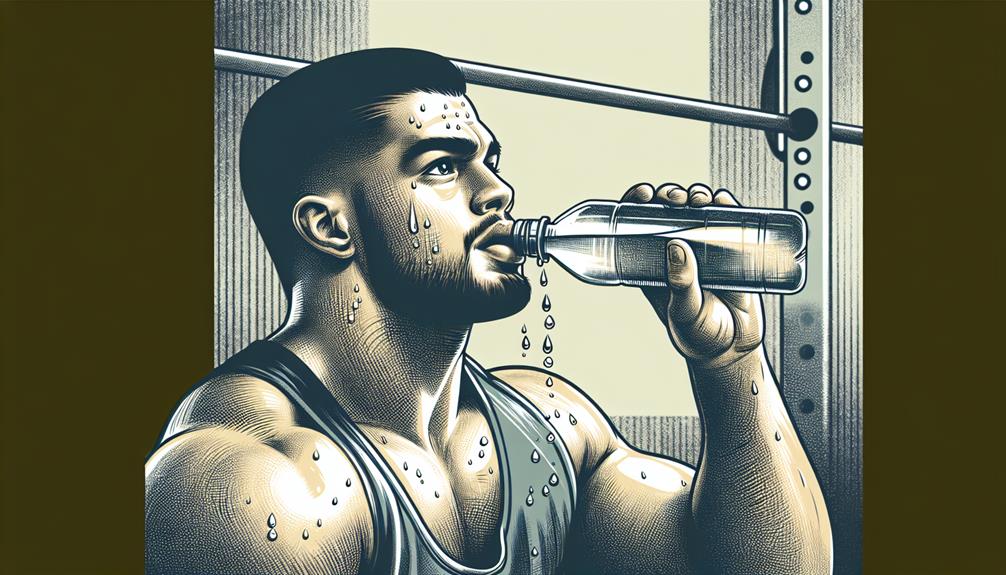
Proper hydration is essential for optimizing your performance as a powerlifter. Hydration plays a crucial role in maintaining your body's fluid balance, regulating body temperature, and supporting overall athletic performance. When it comes to hydration, it is not just about drinking water; electrolytes also play a vital role in replenishing the minerals lost through sweat.
During intense training sessions or competitions, you can lose a significant amount of fluid and electrolytes through sweat. To ensure optimal hydration, it is important to consume fluids that contain electrolytes such as sodium, potassium, and magnesium. Sports drinks are a convenient and effective way to replenish both fluids and electrolytes.
Sports drinks are specifically formulated to provide the right balance of carbohydrates, electrolytes, and fluids to help you maintain hydration and fuel your performance. The carbohydrates in sports drinks can also provide a quick source of energy during prolonged workouts or competitions. Additionally, the sodium in sports drinks helps stimulate thirst and promote fluid retention, while the potassium and magnesium aid in muscle function and prevent cramping.
It is important to note that while sports drinks can be beneficial during intense training sessions or competitions lasting longer than one hour, they may not be necessary for shorter durations or less intense workouts. In those cases, water alone may be sufficient to maintain hydration.
Pre-Workout Fueling Strategies
As you prepare for your powerlifting session, fueling your body with the right nutrients is crucial for maximizing your performance and achieving your goals. The pre-workout meal you consume plays a vital role in providing the energy and nutrients your body needs to perform at its best. When selecting pre-workout meal options, it's important to focus on carbohydrates and protein. Carbohydrates are the primary source of fuel for your muscles and can be obtained from foods like whole grains, fruits, and vegetables. Protein is essential for muscle repair and growth, and sources such as lean meats, poultry, fish, and dairy products can provide the necessary amino acids.
In addition to pre-workout meals, there are also supplements available that can help enhance energy levels during your training. Caffeine is a popular and effective supplement for increasing energy and focus. It can be consumed in the form of coffee, tea, or pre-workout supplements. Beta-alanine is another supplement that can improve performance by reducing fatigue and enhancing endurance. It is commonly found in pre-workout formulas.
It's important to note that everyone's nutritional needs and preferences may vary, so it's essential to experiment and find what works best for you. As a powerlifter, fueling your body properly before your workout can significantly impact your performance, so it's worth investing time and effort into finding the right pre-workout meal options and supplements to optimize your energy levels and enhance your training sessions.
Post-Workout Recovery Nutrition
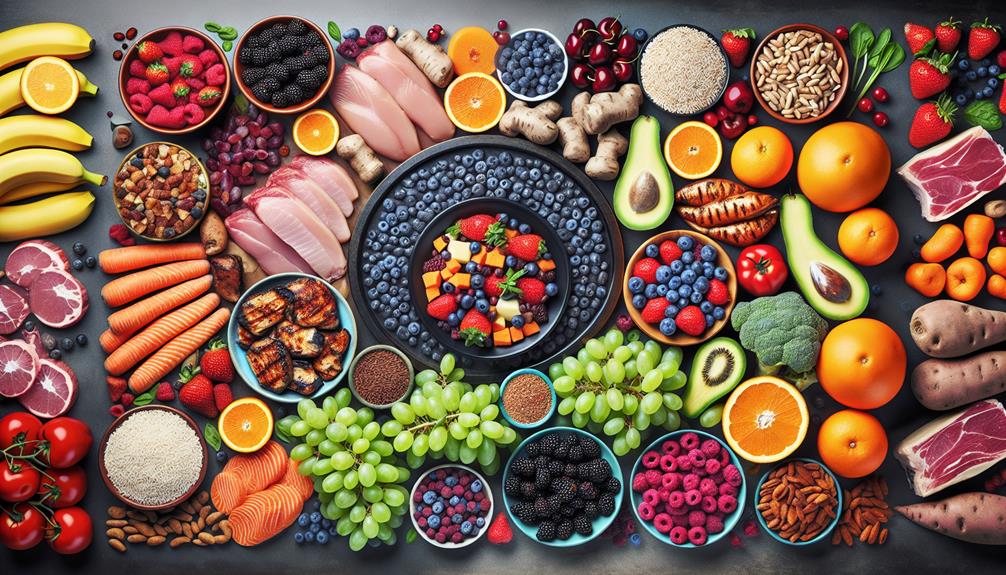
To optimize your recovery after a powerlifting session, it is crucial to prioritize your post-workout nutrition. Proper nutrition plays a key role in muscle repair and growth, allowing you to maximize the benefits of your training. One important aspect of post-workout nutrition is protein intake. Protein provides the essential amino acids needed for muscle repair and synthesis. Aim to consume 20-30 grams of high-quality protein within 30 minutes to an hour after your workout to initiate the recovery process.
In addition to protein, carbohydrates are also important for replenishing glycogen stores and providing energy. Including carbohydrates in your post-workout meal or snack can help restore energy levels and enhance recovery. Aim for a ratio of 3:1 or 4:1 carbohydrates to protein for optimal recovery.
To give you a better understanding of post-workout nutrition, here is a table outlining some examples of protein and carbohydrate sources that you can incorporate into your post-workout meals or snacks:
| Protein Sources | Carbohydrate Sources |
|---|---|
| Chicken breast | Sweet potatoes |
| Greek yogurt | Brown rice |
| Salmon | Quinoa |
| Whey protein powder | Oatmeal |
Remember to individualize your post-workout nutrition based on your specific goals, preferences, and dietary needs. By prioritizing your post-workout nutrition and incorporating adequate protein and carbohydrates, you can optimize your recovery and support muscle repair after your powerlifting sessions.
Frequently Asked Questions
Can Powerlifters Follow a Vegetarian or Vegan Diet and Still Meet Their Nutritional Needs for Optimal Performance?
Yes, powerlifters can follow a vegetarian or vegan diet and still meet their nutritional needs for optimal performance. Plant-based powerlifting is possible with a variety of vegan protein sources like tofu, beans, lentils, and hemp seeds.
Is It Necessary to Take Supplements, Such as Protein Powder or Creatine, in Order to Fuel Athletic Performance as a Powerlifter?
You don't have to rely on supplements like protein powder or creatine to fuel your athletic performance as a powerlifter. There are alternative options that can be just as effective in helping you reach your goals.
How Can Powerlifters Ensure They Are Getting Enough Micronutrients, Such as Vitamins and Minerals, in Their Diet?
To ensure you're getting enough micronutrients as a powerlifter, focus on a balanced diet rich in fruits, vegetables, lean proteins, and whole grains. These nutrients are crucial for recovery and optimal athletic performance.
Are There Any Specific Nutrition Strategies That Can Help Powerlifters Prevent Injuries or Aid in Recovery From Injuries?
To prevent injuries, powerlifters need nutrition strategies that are on point. And when it comes to recovery from injuries, they need strategies that hit the mark. Let's explore these game-changers!
How Important Is It for Powerlifters to Monitor Their Body Composition, Such as Body Fat Percentage, and How Can Nutrition Play a Role in Achieving and Maintaining Optimal Body Composition?
Monitoring your body composition, like body fat percentage, is crucial for powerlifters. Nutrition plays a significant role in achieving and maintaining optimal body composition. Tracking macros and staying hydrated are key factors in optimizing body composition for peak athletic performance.
Conclusion
So, there you have it, powerlifters. By following these nutrition strategies, you can fuel your athletic performance and reach new heights in your training. Understanding macronutrient ratios, timing your meals and snacks, staying hydrated, and fueling up before and after workouts are all essential for optimal performance. Remember, proper nutrition is the key to unlocking your full potential in the gym. Start implementing these strategies today and watch your strength and power soar.






